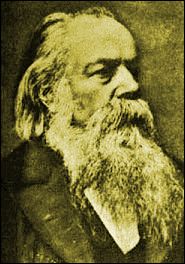Henry Vincent facts for kids
Henry Vincent (born May 10, 1813 – died December 29, 1878) was an important leader in Britain. He helped start groups for working people. He was a popular speaker for the Chartist movement, which fought for ordinary people to have more say in government. Vincent was also an anti-slavery campaigner later in his life. He tried to become a member of parliament but was not successful.
Contents
Early Life
Henry Vincent was born in High Holborn, a part of London. His father was a goldsmith. When his father's business failed, Henry's family moved to Kingston upon Hull.
By 1828, Henry was a young apprentice in the printing business. After finishing his training, he went back to London. He was very interested in the ideas of Tom Paine. Paine believed that all people should have the right to vote, including women. He also thought the government should provide help for people in need.
Becoming a Political Speaker
In 1833, Vincent was working as a printer in London. He also learned more about politics. In 1836, he joined the London Working Men's Association. This group worked for the rights of working people. Henry quickly became known as a great speaker. He promoted the idea that everyone should have the right to vote.
In 1837, he traveled with John Cleave to northern England. They helped local people start Working Men's Associations in cities like Hull, Leeds, and Bradford.
Standing Up for Workers
In 1838, Henry Vincent was given a big job. He was to spread the message of voting rights and workers' welfare in South Wales and western England. This area included places like Cornwall and Gloucestershire.
At this time, many powerful people did not like these ideas. They included rich landowners and factory owners. They resisted the calls for votes for all, better working conditions, and fair wages. During a visit to Devizes, Henry was even attacked and knocked out.
A Powerful Voice
Henry Vincent was a very skilled public speaker. He spoke with passion and clear logic. He had lots of energy and could convince many different people to agree with his message.
Facing Trouble
The authorities tried to stop Henry Vincent from speaking. They were worried about a workers' revolution. They feared violence and damage to property. They especially disliked Chartists who talked about using force to get what they wanted.
Government spies followed Vincent. They looked for reasons to arrest him. In those days, stirring up social unrest could lead to very serious punishments. People could be sent to Australia or even face the death penalty.
Time in Prison
In May 1839, Henry Vincent was arrested. He was put in Monmouth County Gaol for making "inflammatory remarks." This meant his speeches were seen as causing trouble. On August 2, 1839, he was sentenced to one year in prison.
While in prison, he was not allowed to have writing materials. He could only read religious books. His arrest was one reason for the Newport Rising in South Wales in 1839. This was a large protest by Chartists.
More Prison Time
After his release, Henry was watched closely. He was arrested again almost right away. This time, it was for "using seditious language." This meant his words were seen as encouraging rebellion.
He defended himself in court but was found guilty. He was sentenced to another year in prison. This time, he was allowed visitors. One visitor was Francis Place, who taught Henry French, economics, and history.
Freedom, Marriage, and a New Newspaper
Henry Vincent was released from prison in January 1841. He then married Lucy, the daughter of John Cleave. John was the editor of a newspaper called Working Man's Friend. Henry and Lucy moved to Bath. There, they started their own newspaper, The National Vindicator.
A Change in Approach
Henry quickly went back to traveling and spreading the Chartist message. This time, he chose a different path. He joined the "moral force" Chartists, led by William Lovett. These Chartists believed in peaceful change, not physical force. Henry used less angry language. He focused on improving education and the lives of working people.
He also joined groups that promoted the temperance movement. This movement encouraged people to drink less alcohol or no alcohol at all. Many factory owners and their families supported this idea. They believed drinking caused social problems.
However, this new approach caused problems with some old friends. Feargus O'Connor, another Chartist leader, disagreed with Vincent. He thought Henry was making the Chartist message weaker.
In 1842, Henry helped set up the Complete Suffrage Union. He was still part of the National Charter Association. But he was no longer as close to the main Chartist leaders. Some of his old friendships had broken.
Trying for Parliament
The National Vindicator newspaper stopped printing in 1842. Henry then focused more on giving lectures on many different topics, not just Chartism. For example, he gave a talk about the Great Exhibition in 1851. He tried to become a member of parliament several times. He ran in places like Ipswich (in 1842 and 1847) and York (in 1848 and 1852). But he was never elected.
Later Life
Even with these setbacks, Henry Vincent kept working for his beliefs. He was invited to speak on long tours in America in 1866, 1867, 1875, and 1876. During this time, he focused on fighting against slavery. He also gave talks on other political topics, like "Oliver Cromwell."
His travels made him interested in world politics and working conditions everywhere. In 1876, he spoke out against terrible events happening in Bulgaria. On November 8, 1876, he gave a lecture called "The English-Speaking Race: Its Conflicts and Triumphs."
Death and Legacy
Henry Vincent died on December 29, 1878. He is buried at Abney Park Cemetery in Stoke Newington.


